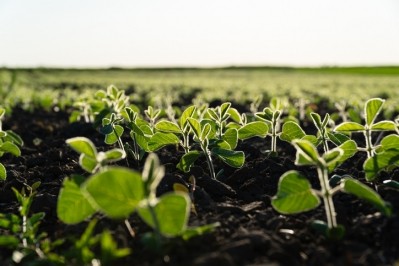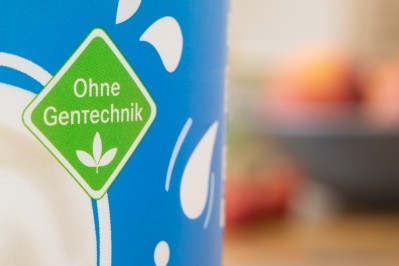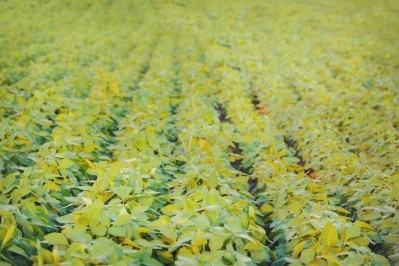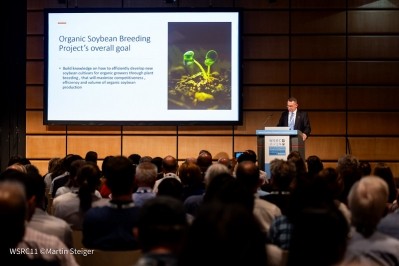Donau Soja rubbishes claims that the ‘raw material basis’ for non-GM production ‘has collapsed’
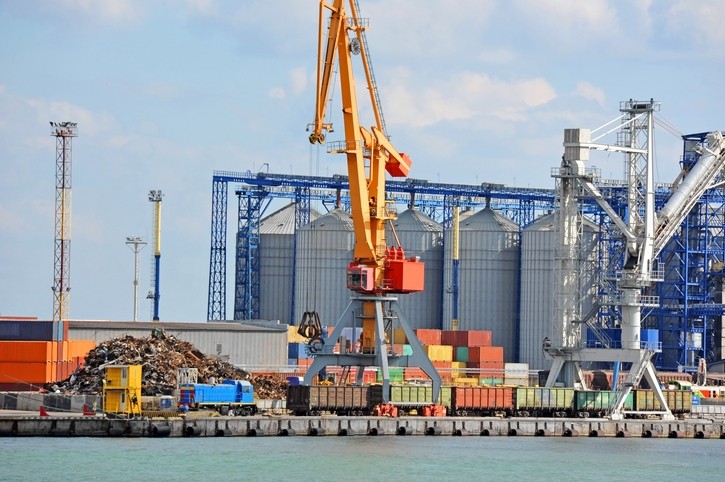
Donau Soja expects a soybean harvest of just under 10 million tons in Europe this year, of which an estimated 7m tons will be non-GMO.
Those estimates were included in an open letter by Donau Soja to Germany’s agriculture cooperative representatives, the Deutscher Raiffeisenverband (DRV), who, along with the German Association for Animal Nutrition (DVT), has published reports claiming that supply of EU GMO-free raw materials was being hindered significantly by the war in Ukraine.
In mid-March, the DRV claimed the “raw material basis for non-GM production had collapsed" and, in April, that “maintaining the supply of GM0 free goods to the broad market was not realistic in the longer term.”
In the communication sent yesterday [May 12] to DRV managing director, Dr Henning Ehlers, Matthias Krön, president of Donau Soja, called for a “fact-based discussion” and he accused DRV of engaging in political spin, and that it was using “the tragic Ukraine war to gain agricultural policy related advantages.”
Such a stance only harms German and European consumers as well as farmers in Germany and Ukraine, said the Donau Soja lead.
“If you and your partners opt out of GMO-free, to whom will European farmers - including an increasing number of German soy farms - supply their GMO-free soybeans? European farmers are competitive with GMO-free soy. European agriculture cannot compete economically with imported GM soy.
“When you conjure up the total failure of Ukraine, you are ignoring facts. Every day, increasing quantities of agricultural goods from Ukraine enter the EU via land and inland waterways. Already 55% of soy imports have been exported by land. Just these days, Ukrainian farmers are sitting on their tractors and sowing more Donau Soja than ever.
“Yes, there are challenges - especially in logistics. This is where the German food industry can get involved in order to bring more, not less, arable goods from Ukraine to the EU,” reads Krön’s letter.
Any move to buy more GMO soy from overseas, instead of supporting locally grown soy, will only serve to increase Europe’s dependence on imported proteins, he added.
Crushers confirm non-GM soy availability
Also weighing in on the issue was Susanne Fromwald, senior advisor, and project leader, Donau Soja. She told FeedNavigator that "the war in Ukraine is really being misused to try to destroy the non-GM sector in Germany. DVR and DVT are causing a lot of additional insecurity for food producers and retailers and that’s why we decided to publish this open letter.”
The leading European crushers are not at all concerned about supply of non-GMO raw materials, she added.
"Crushers in Germany (ADM), Austria (BAG), Hungary (Vandamme), Italy (Cereal Docks) and Ukraine (ATK) have all confirmed availability until the harvest and also afterwards. Actually, we are expecting 10 to 15% more soy in the EU this year. So, even if there is a shortage from Ukraine after the harvest, which is not expected, there will be enough non-GM volumes,” stressed Fromwald.
Interestingly, according to Donau Soja data, Ukraine supplied only about 10% of Germany's estimated GMO-free soy demand in 2021.
“Ukraine delivered 130,000 tons of soybean meal and 430,000 tons of soybeans to the EU in 2021. Germany sourced less than 100,000 tons of GMO-free soybeans and 30,000 tons of GMO-free soymeal from Ukraine, according to expert estimates.”
DRV response
We asked DRV to comment on Krön’s claims. The organization told us it “could not respond in detail to” the letter and, instead, sent us a statement providing its managing director‘s perspective on the supply of non-GMO soy on the global market:
“Although a reliable forecast is not possible, it can be assumed that the global supply of non-GMO soy will no longer be able to meet world demand from the second half of 2022. Constrained logistics and the uncertainty of gas supply determine the world markets. Cultivation behavior for non-GMO commodities in Brazil is declining without framework agreements, as farmers are risk-averse due to high input prices and no longer engage in upstream activities.
“Furthermore, the increasing drought in parts of Europe, but also in India, is leading to reduced forecasts of yield expectations and thus exports from these countries. In India, domestic demand is also growing, mainly due to the growth of the poultry industry, and logistics problems are further hampering exports. In the US, nearly 100% of exports of non-GMO commodities are under master contracts heading to Asia. Furthermore, mixing with GM varieties increasingly exceeds the 1% threshold in the US, which is accepted in Asia but not in Europe.”
The DVT said, as the letter was addressed to the DRV, it would not be commenting.
VLOG’s perspective
The Association of Food without Genetic Engineering (VLOG), the group behind the non-GMO ‘Ohne Gentechnik’ (OG) standard in Germany, has also been lending its voice to this debate.
Last month saw Alexander Hissting, managing director of VLOG, state that the DRV along with the German feed federation, the DVT, are deliberately trying to talk the successful 'Ohne Gentechnik' sector into a crisis without any factual basis.
The war in Ukraine, he said, has far-reaching elementary effects in many areas, including the supply of agricultural raw materials, and with resulting exorbitant prices for animal feed. But DRV and DVT are using that conflict to distort the reality, consulting “their own pre-colored crystal ball for long-term forecasts,” he commented.
In reference to data on rapeseed supply issued by DRV and DVT, Hissting said: “In 2020, the degree of self-sufficiency in Germany for the actual feed ingredient, rapeseed meal, was not 30%, as the two associations claim, but over 120%. Presumably, DRV and DVT are referring to the unprocessed raw material rapeseed, for which the degree of self-sufficiency was just under 40%. However, imports from Ukraine accounted for only about 10% of the total volume of rapeseed to be processed in Germany."
According to the VLOG lead, DRV and DVT want to reduce demand for GMO-free produce within the German retail and food sectors, and thus, ultimately, also the supply, with the aim of weakening the 'Ohne Gentechnik' platform. “It is absolutely unacceptable to use the consequences of the horrific war against Ukraine as a pretext to push through one’s own interests.”
Long-term development depends on the further course of the war, on weather-related yield levels, and on supply and demand worldwide, said Hissting. ”If the corresponding demand exists, more GMO-free feed crops will, of course, in the future also be grown in other regions.”
